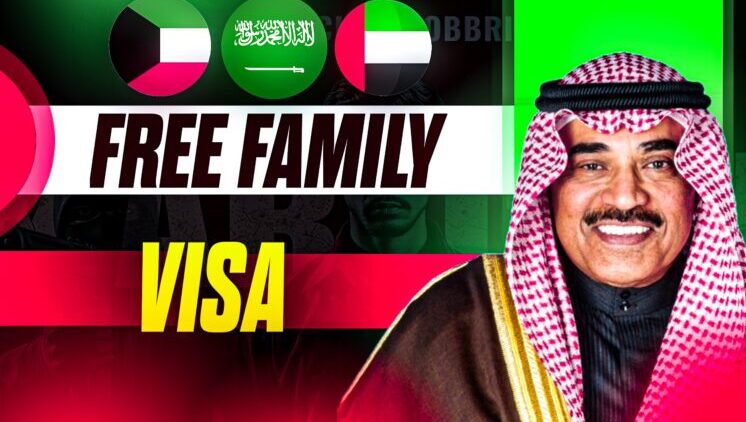How to Obtain a Free Family Dubai Visa A Comprehensive Guide by uaefree09
Securing a family visa in Dubai is a significant step for expatriates aiming to reunite with their loved ones in the UAE. While the term “free” may not entirely apply due to associated costs, there are avenues to minimize expenses. This guide delves into the requirements, processes, and strategies to obtain a family visa in Dubai, focusing on cost-effective methods.
Understanding the UAE Family Visa
The UAE family visa allows expatriates residing in Dubai to sponsor their immediate family members, including spouses, children, and, under certain conditions, parents. This visa enables families to live together in the UAE, fostering a stable environment for personal and professional growth.
Eligibility Criteria for Sponsoring Family Members
1. Minimum Salary Requirements
- Male Sponsors: Must earn a minimum monthly salary of AED 4,000 or AED 3,000 plus accommodation.
- Female Sponsors: Must earn a minimum monthly salary of AED 10,000 or AED 8,000 plus accommodation.
These requirements ensure that sponsors have the financial capacity to support their dependents during their stay in the UAE.
2. Employment Status
Both employees and business owners with valid UAE residence visas are eligible to sponsor their families. The profession of the sponsor no longer affects eligibility, broadening opportunities for various expatriates.
3. Medical Fitness
All family members aged 18 and above must undergo a medical fitness test at government-approved health centers in the UAE. This includes screenings for HIV and tuberculosis. Individuals deemed medically unfit will not be granted a residence visa.
4. Accommodation Requirements
Sponsors must provide proof of suitable accommodation for their family members. This typically involves submitting a valid tenancy contract or a company-provided accommodation agreement.
Step-by-Step Process to Apply for a Family Visa in Dubai
Step 1: Gather Necessary Documents
Ensure you have the following documents:
- Passport copies of the sponsor and family members.
- Recent passport-sized photographs.
- Legalized marriage certificate (for spouses).
- Legalized birth certificates (for children).
- Employment contract or salary certificate.
- Proof of accommodation.
- Medical insurance for each family member.
- Medical fitness certificates for family members aged 18 and above.
Step 2: Submit Application
Applications can be submitted through the General Directorate of Residency and Foreigners Affairs (GDRFA) in Dubai or via the Amer service centers. Ensure all documents are complete and accurate to avoid delays.
Step 3: Pay Applicable Fees
While the term “free” may not apply, there are strategies to minimize costs:
- Salary Considerations: Meeting the minimum salary requirements ensures eligibility without additional financial burdens.
- Accommodation: Providing proof of accommodation may reduce the need for additional deposits.
- Medical Insurance: Opting for cost-effective medical insurance plans can lower overall expenses.
Step 4: Await Approval
Processing times can vary, but typically, applications are processed within two to three weeks. Ensure all conditions are met to facilitate a smooth approval process.
Special Considerations for Sponsoring Parents
Sponsoring parents involves additional requirements:
- Minimum Salary: Sponsors must earn a minimum monthly salary of AED 20,000 or AED 19,000 plus a two-bedroom accommodation.
- Deposit: A refundable deposit of AED 2,500 per parent is required.
- Medical Insurance: Sponsors must provide medical insurance for their parents.
- Accommodation: Parents must have their own room in the accommodation provided.
These measures ensure that sponsors have the financial and living arrangements to support their parents adequately.
Alternatives to Traditional Family Visa
For those seeking alternative methods to bring family members to Dubai, consider the following options:
1. UAE Golden Visa
The UAE Golden Visa is a long-term residency permit that allows foreign nationals to live, work, and conduct business in the UAE without requiring a local sponsor. It offers several significant advantages, such as the ability to sponsor family members, maintain residency even during long stays outside the UAE, and operate businesses independently.
2. Investor Visa
Investors who establish businesses in Dubai can obtain an investor visa, which may include provisions for sponsoring family members. This route requires substantial financial investment and adherence to specific regulations.
3. Remote Work Visa
The UAE offers a remote work visa that allows expatriates to live in Dubai while working for companies abroad. This visa may include options for sponsoring family members, depending on the applicant’s circumstances.
Conclusion
While obtaining a family visa in Dubai involves certain costs, understanding the requirements and exploring alternative visa options can help minimize expenses. By ensuring eligibility, preparing necessary documents, and considering alternative visa routes, expatriates can reunite with their families in Dubai in a cost-effective manner.


